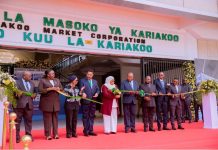Africa-Press – Tanzania. AN appeal has been made to the government to consider reviewing some nuisance taxes and levies which hinder investors in livestock industry.
The taxes, they said, impede the investors from competing in the international market, especially in exporting meat and other livestock products to neighbouring countries.
Such an appeal was made by the Director of Eliya Food Overseas Ltd, Shabbir Virjee to the Deputy Minister of Livestock and Fisheries, Ms Pauline Gekul who visited the factory’s operations at Namanga Border Village recently.
Mr Virjee said neighbouring counterparts in Ethiopia, Kenya, Somalia and Uganda sell their livestock at much lower prices due to minimal taxes and levies.
“The biggest challenges we face is taxes and levies…currently, we are paying at least five taxes before exporting our livestock products, this has made it difficult for us to compete in the international market because our products sell at much higher prices,” said Mr Virjee.
He identified some of the nuisance taxes and levies to include 50/- paid to the Ministry of Agriculture for a kilogramme, the Meat Board secures a percentage of the total value, the Muslim Council of Tanzania (Bakwata) for Halal license, while 0.1 per cent is paid for radiation taxes among other licenses.
He added that “They usually pay the taxes at each and every step, something which is hindering them from thriving and competing with their neighbours who charge less”.
Besides, another challenge facing the investors is lack of enough livestock as raw materials in the factory, calling on the government to intervene so that they can get more livestock for processing.
The Director noted that most of the herders sell their livestock in Kenya because the price there is appealing.
They requested the deputy minister to assist them to acquire reliable raw materials for their factory, citing that the factory slaughters only 2000 goats and 400 cattle daily, which is less than the actual demand.
According to him, if the current situation continues, running the factory will become difficult, taking into account that they will fail to meet both the inside and outside market.
He disclosed that the bigger goal of the factory was to create jobs for more than 150 Tanzanians.
Ms Gekul applauded the investors for the efforts they have put in establishing the industry and fulfilling President John Magufuli’s aspiration of industrialising the country, pledging to work on the highlighted challenges.
She directed the Permanent Secretary of the responsible ministry, Prof Elisante Ole Gabriel to formulate a team to follow up on the highlighted issues, including the one relating to herders sending their livestock to neighbouring countries.
The Deputy Minister stressed that the report with regard to factors pushing herders to trade their livestock in neighbouring countries should be filed immediately for further action.
She also directed the PS to look for ways the National Ranching Company Limited (NARCO) can intervene in tackling the shortage of raw materials.
“This factory must be protected with all we can, which includes educating the herders on its existence and its importance…this will enable them to sell their livestock within the country instead of selling them in neighbouring countries,” noted Ms Gekul.
She, however, expressed the ministry’s commitment to enable livestock keepers through artificial insemination centres in the country to access good cattle breeds in the wake of generating a good income through the available livestock processing industries.







